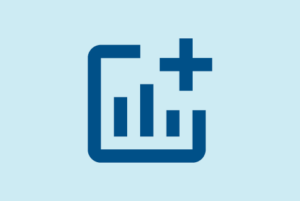President Trump on Wednesday signed bipartisan legislation to address the opioid crisis. The Substance Use-Disorder Prevention that Promotes Opioid Recovery and Treatment for Patients and Communities Act (H.R. 6) includes a number of provisions intended to reduce opioid use and improve treatment and recovery programs for substance use disorders (SUD). CHA has summarized the key provisions for hospitals, and has attached a detailed legislative summary prepared by Health Policy Alternatives.
- Institution for Mental Disease (IMD) Exclusion: Beginning Oct. 1, 2019, through Sept. 30, 2023, states can elect to provide Medicaid coverage in qualifying IMDs for individuals ages 21-64 who have at least one SUD diagnosis for a period of no more than 30 days in a 12-month period. Qualifying IMDs must offer at least two forms of medication-assisted treatment (MAT) for SUD, and states must comply with a number of conditions of coverage and reporting requirements.
- Electronic Health Record Incentive Payments for Behavioral Health Providers: The bill authorizes the Center for Medicare & Medicaid Innovation to test a model that would provide incentive payments to behavioral health providers that adopt and use certified electronic health record technology to improve care quality and coordination through electronic documentation and exchange of health information. Behavioral health providers include Medicare psychiatric hospitals, community mental health centers, hospitals, treatment facilities, and mental health or substance use disorder providers that participate in Medicaid. Clinical psychologists, nurse practitioners and clinical social workers are also included.
- Expanded Use of Telehealth for SUD Treatment: Beginning Jan. 1, 2019, the bill eliminates current geographic requirements for Medicare telehealth services for eligible beneficiaries with a SUD for purposes of treating the SUD or co-occurring mental health disorder. Specifically, this provision allows Medicare beneficiaries to receive telehealth services if they are not located in a rural or health professional shortage area, and adds the home as an originating site; however, the telehealth facility fee will not be paid if the originating site is the home. Notably, the legislation allows the Health and Human Services (HHS) Secretary to implement this section through an interim final rule in lieu of regular notice and comment rulemaking.
- Opioid Use Disorder Treatment Demonstration Program: Authorizes a four-year Medicare demonstration program, to begin no later than Jan. 1, 2021, under which Medicare will pay for or otherwise arrange opioid use disorder treatment services delivered to applicable beneficiaries by opioid use disorder care teams. To participate, providers must apply and be selected for the program through a process to be established by the HHS Secretary. Participants may include physicians, hospital outpatient departments, federally qualified health centers, rural health clinics, community mental health centers and community behavioral health clinics. Participants will be paid a monthly care management fee, in addition to any Medicare payment that would otherwise be made to the opioid use care disorder team or to the provider participant, which may be used to deliver services not otherwise eligible for Medicare payment.
- Combatting Opioid Abuse in Hospitals: The bill requires the Centers for Medicare & Medicaid Services (CMS) to develop and post on its website guidance for hospitals on pain management strategies and opioid use disorder prevention strategies for Medicare beneficiaries. The bill further requires CMS to establish two technical expert panels: one to review quality measures related to opioids and opioid use disorders, including care, prevention, diagnosis, treatment and health outcomes; and the other to provide recommendations on reducing opioid use in the inpatient and outpatient surgical settings and best practices for pain management.
- Revision of HCAHPS Survey Related to Pain Management: The bill revises the Hospital Consumer Assessment of Healthcare Providers and Systems (HCAHPS) survey, beginning Jan. 1, 2020, to remove questions related to “communication about pain” that do not take into account whether the patient was informed about the risks associated with opioid use and non-opioid treatment alternatives. CMS is also prohibited from posting on the Hospital Compare website any measures based on the “communication about pain” questions that were included in the HCAHPS surveys administered during 2018 and 2019. In addition, no measure based on the 2018 or 2019 communication about pain questions may be included in the Hospital Value-Based Purchasing Program. CMS previously proposed removing the current “communication about pain” questions beginning with January 2022 discharges in its calendar year 2019 outpatient prospective payment system proposed rule. A final rule is expected on or around Nov. 1.


